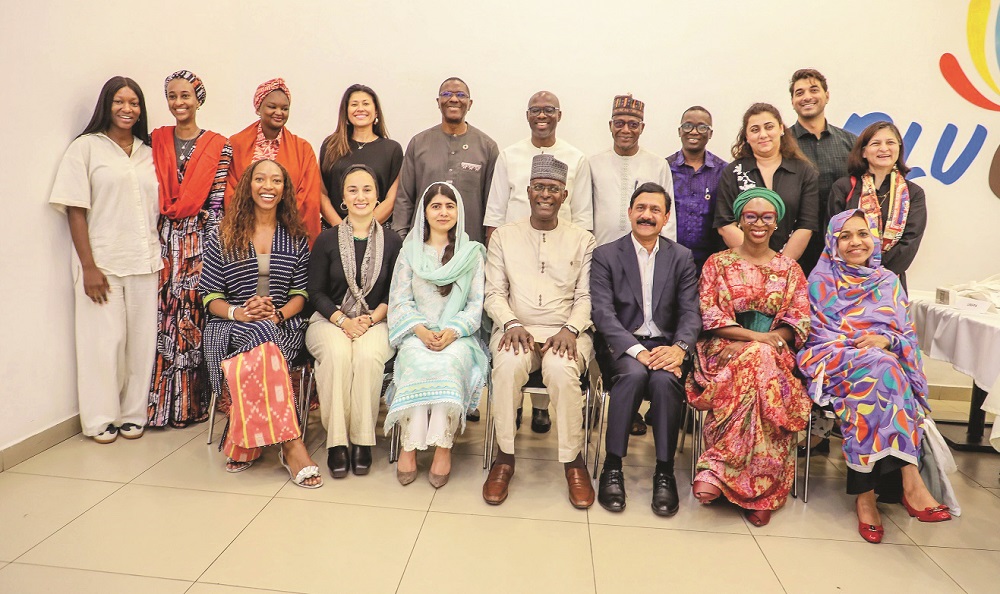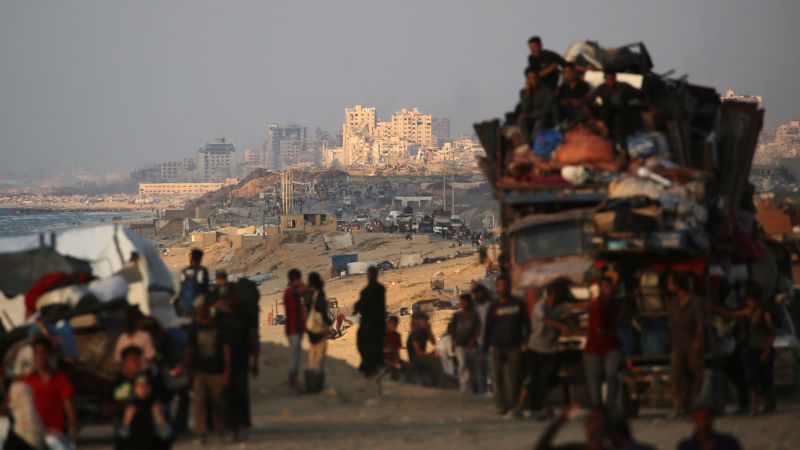By Damola Kola-Dare,The Nation
Copyright thenationonlineng

Observers have argued that part of the perennial issues bedevilling the education sector are the scourge of out-of-school children, which many have termed as a ticking time bomb and the issue of apathy to girl-child education. They stressed the imperative of addressing these twin challenges, moreso advocating for concerted efforts in the drive for sustained progress. They pointed out that challenges were quite daunting, but not insurmountable. While they identified strong governance, innovative partnerships, and sustained investment as key, they served a powerful reminder that investing in girl-child education and fixing the out-of-school crisis was one of the smartest investments for a sustainable future, DAMOLA KOLA-DARE and VICTORIA AMADI report
Fed Govt and UN initiatives on girl-child education
Nigeria faces a significant challenge in the education of the girl-child, with an estimated 7.6 million girls deprived of an education, particularly in the northern regions. The United Nations (UN), primarily through its agencies like the United Nations Children’s Fund (UNICEF) and the United Nations Educational, Scientific and Cultural Organisation (UNESCO), is actively supporting the Federal Government to address the barriers to girl-child education in Nigeria through targeted programmes, advocacy and strategic partnerships.
One of the UN initiatives and programmes is the Girls’ Education Project (GEP3). This was a landmark initiative, ran by UNICEF in partnership with the Nigerian government and the UK’s Foreign, Commonwealth and Development Office (FCDO). It was implemented from 2012 to 2022. It successfully enrolled 1.5 million more girls in school across six northern states by addressing socio-economic barriers and gender norms.
Another initiative is Reaching and Empowering Adolescent Girls (REACH), which is a follow-up to GEP3. UNICEF launched the REACH programme in 2023. It focused on empowering adolescent girls in northwestern Nigeria through integrated, multi-sectoral programmes for education and life skills.
Also included is Accelerated Second Chance Education Programme, a UNESCO-led initiative, launched before the COVID-19 pandemic. It helped women and girls who had dropped out of school re-enter the education system through remote and in-person learning. In 2022, over 6,000 women and girls graduated from the programme.
A few days ago, the UN reaffirmed its commitment to strengthening girls’ education in Nigeria, with a steely resolve for collaboration with the Malala Fund to ensure millions of children, especially the girl-child and out of school children, are back in classes for learning.
At a high-level engagement in Abuja with Malala Yousafzai, co-founder of the Malala Fund, UN Resident and Humanitarian Coordinator in Nigeria, Mohamed Malick Fall, emphasised that no child should be left behind.
Malala lauded Nigeria’s central role in the fund’s 2025–2030 global strategy, noting that over $8 million had already been invested in local partner organisations.
Read Also: Lagos Assembly hails police command on professionalism
She stressed the importance of supporting married and pregnant girls to return to school, boosting education financing, and leveraging schooling as a tool to end child marriage.
Also, the United Nations Children’s Fund (UNICEF) has renewed its commitment to reducing the high number of out-of-school children in Sokoto State.
During a visit to SKS Model Primary School, Yabo, UNICEF Country Representative Wafa Said praised local efforts to boost enrolment but expressed concern over children still roaming the streets. He promised to strengthen teacher training and expand climate-friendly school initiatives.
The imperative of addressing girl-child education, out-of-school scourge
However, with these international organisations intensifying efforts to ensure every Nigerian child, especially girls, can access and complete quality education, stakeholders believe that should also inspire the government to engender sustained efforts to address the pressing challenges.
Founder of FOWGI, Mrs. Rifkatu Ademola, highlighted key challenges limiting girls’ access to uninterrupted quality education, such as lack of safe learning spaces, cultural norms, and economic hardship.
“We must align action with policy to ensure that no girl is left behind due to poverty, period, or patriarchy.
“We must innovate in how we teach, support girls emotionally and mentally, and create solutions rooted in their lived experiences,” she said.
Mrs. Ademola stressed the need for collaboration between government, civil society, schools, parents, and the girls themselves, adding that real change could not occur in silos.
“We must intentionally raise the next generation of girl leaders, not just as beneficiaries of education, but as creators of systems, solutions, and structures,” she added.
Team Lead, NCAssociates EdTech Consulting and an EdTech specialist, Isaac-Joseph Olanrewaju, said the millions of school-age children who were out of school, and girls disproportionately excluded from learning opportunities undermined the nation’s development aspirations, fueled cycles of poverty, and weakened national competitiveness.
“Educating our girls is not charity—it is smart economics. Evidence shows that girls who complete school are less likely to marry early, more likely to earn higher incomes, and more likely to educate their own children. This creates a multiplier effect that strengthens households, communities, and the nation.
“Nigeria cannot achieve its ambitious national development goals while millions of its children remain out of school. We must recognise that every child excluded from education is a lost opportunity for national progress,” he said.
An educationist and Director, Capacity Development Initiative, Lagos, Mr. Onanuga Olubayo, noted that most of the cities that rated high on the index of poor education to the girl-child were within the continent of Africa, Asia and the Middle East. This, he said, was borne out of a general conservationist opinion on the girl-child, their position socially and economically.
“Education should be holistic. We must take into serious consideration the total well-being of the child as reflected in the taxonomy or domains of learning which encompasses the child’s cognitive, affective, psychomotor and every other necessary skills that would ensure proper grooming of the child for better applications of the knowledge gained at school. I emphasise there should be no preference for or reference to gender, a child is a child whether boy or girl and deserves education as an integral part of their rights,” he said.
Olubayo stated that the post COVID-19 pandemic opened eyes across the globe to several possibilities (opportunities) that were hitherto not perceived and particularly several holes and gaps that should be fixed in the Nigerian education system.
He said before the pandemic, there had been issues associated with out-of-school children, particularly the girl-child, adding that post-pandemic, it has morphed into “a near national embarrassment”.
According to the founder of the Women’s Technology Empowerment Centre (W.TEC) in Nigeria, Oreoluwa Somolu Lesi, the visit is important since it will help to shine light on the gap in the education for the girl-child.
She cited that the main cause of girl-child early marriage was poverty and illiteracy, adding that the partnership would help minimise the pandemic of girl-child marriage in Nigeria.
“Her foundation has really supported local organisations’ focus on education.
“What the foundation is doing is important. The partnership is important because it spotlights the problem.
“The visit is important. It’s an opportunity to advocate and discuss the way forward for the girl-child,” Lesi said.
For the Lead, Edu-norms Consulting and Education Business School, Dr. Adedamola Israel Olofa, the cost of leaving millions of children out of school — especially girls — is too high for Nigeria. He stressed the need to act with urgency: spend wisely, protect schools, support families, and change social attitudes to turn the tide and secure the future of children.
The President of Association for Formidable Educational Development (AFED), Mr. Kanu Emmanuel Orji, noted that Malala’s visit to Nigeria and partnership with UNICEF to promote girl-child education was a significant development that deserved commendation.
Orji also stressed that the collaboration had the potential to drive meaningful change in the education sector, particularly in addressing the issue of out-of-school children.
Highlighting the importance of low-cost schools as a viable model for providing accessible and quality education to marginalised communities, the AFED’s head added that by supporting this push, Nigeria can make significant strides in capturing all school-age children and promoting inclusive education.
“The Malala Fund believes in innovation, and Malala as a product of a low-cost school owned by her father when she was attacked by the Taliban, received a great feat in education that has placed her on global stage and so must emphasis on low-cost schools as a global solution to tackle the problem of out-of-school children was noteworthy,” he said.
Educationist and founder, Baiwa Foundation for Human Development, Dr. Mikailu Ibrahim reiterated that the visit would draw global attention to the challenges girls faced in accessing education, serving as an inspiration and advocacy. He added that her visit to Nigeria and her partnership with UNICEF were significant for advancing girls’ education in the country.
Ibrahim also noted that the collaboration might likely influence policies that prioritise girls’ education, facilitating necessary reforms.
He also stressed that the partnership would also engage community stakeholders, addressing cultural barriers that hinder girls from attending school.
“In fact, partners in the sector are already talking about the visit and its promise of UNICEF’s resources, especially from the FCDO funded Girl’s Education Programme (Phases 1-3) can provide vital support, including funding, educational materials and teacher training and improving infrastructure,” he added.
Panacea to the twin recurrent challenges
On likely solutions to address the problems, Isaac-Joseph said: “The Universal Basic Education framework must be enforced, with increased budgetary allocation and transparent monitoring, build safe learning environments with gender-sensitive infrastructure — functional toilets, clean water, and menstrual hygiene facilities, expand the Safe Schools Declaration to protect children in conflict-prone areas.
“Conditional cash transfers, free school meals, and scholarships can reduce the economic burden and incentivize parents to keep children, especially girls, in school.
“Recruiting and training more female teachers provides role models and encourages girls to remain in school. Continuous professional development in inclusive pedagogy and digital learning is essential.
“Mobile learning apps, radio and TV lessons, and offline digital tools can reach children in remote or insecure regions. Digital literacy programmes must include girls from the outset, preparing them for future careers in STEM and closing the gender gap.”
Olubayo, in a chat with The Nation, said: “There should be grassroots orientation programme to change the culturally wrong notions around the girl-child in homes, families and communities across the nation.
“There should also be a strong emphasis on child’s rights and particularly the girl-child, which should be well-gazzetted and primed for implementation nationwide.”
He also emphasised the creation of a workable framework to execute the afore-mentioned points, which, he asserted, would go a very long way in addressing the problem.
He stressed the need for a proper and well-defined concept on education that actually address deficits in the economy, adding that there should be deliberate investment in education of children.
Olofa said: “Compulsory education and anti-child marriage laws should be enforced. Girls who dropped out because of marriage or unplanned pregnancy should be allowed to return to school.
“Improve security around schools, especially in the North. The abducted 300 Chibok girls on my mind. Provide safe classrooms, toilets for girls, and clean water.”
For Ibrahim, focused initiatives can target Nigeria’s large population of out-of-school children, offering alternative learning opportunities and incentives for families.
“Education empowers girls, enhancing their decision-making abilities and health knowledge, leading to better job prospects and reduced poverty.
“The ripple effects of educating girls extend to mental health, self-esteem, and resilience against gender-based violence,” he added.



